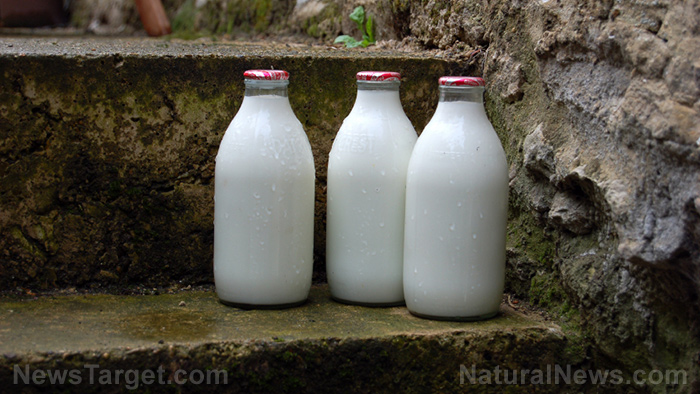Here’s the lowdown on 7 low-carb, keto-friendly milks
11/30/2019 / By Arsenio Toledo

The ketogenic diet places a lot of restrictions on what you eat in order to bring your body into a state of ketosis, a metabolic process wherein your body no longer has enough glucose to burn for energy, and so it has to use the body’s stored fats, resulting in weight loss. This means people who want to adopt the keto diet need to avoid foods that are high in carbohydrates and other food items that can help your body produce glucose.
This puts dairy into the list of banned food items due to its high carb and low fat content. One cup of whole milk contains about 12 g of carbohydrates, which can put a massive dent on the diet plan of people restricting their carb intake to fewer than 50 g a day. There are even several alternatives that should also be avoided due to their similarly high carbohydrate count, such as skim, low-fat, and Lactaid milks, which all contain around 12 g of carbs per cup.
Fortunately, there are low-carb alternatives to dairy milk that people on a keto diet can drink if they’re really craving milk but don’t want to disrupt their diet. (Related: Fruits and the keto diet: What to eat and what to avoid.)
Almond milk
One of the best options for a milk substitute is almond milk, which only has approximately 1.99 g of carbs per cup. Remember to avoid the artificially sweetened versions, as those may give you even more carbs than regular milk at 13.18 g per cup. The unsweetened version is preferable due to its many health properties, such reducing your risk of heart disease and strengthening your bones. Almond milk can be used to make smoothies, oatmeal, and many other keto-friendly meals.
Coconut milk
Coconut milk is another delicious and healthy alternative. Again, steer clear of the sweetened version, as it has 6.66 g of carbs per cup, compared to the 3.38 g found in the unsweetened version. Just one cup of coconut milk can provide you with 110 percent of your reference daily intake (RDI) of manganese, along with other vitamins and minerals such as vitamin C, iron, magnesium, potassium, copper and selenium.
Macadamia milk
Another great, low-carb and nutty milk alternative. Macadamia milk only has one gram of carbs per cup, perfect for a low-carb diet. Macadamia milk’s smooth and slightly sweet taste make it a great non-dairy milk for coffee, cereals and smoothies. Macadamia milk contains many essential vitamins and minerals, such as B-vitamins, iron, folate, manganese and protein.
Soy milk
Soy milk, a very popular dairy milk alternative, also has a very low carb count, with one cup containing just 1.6 g. It’s also low on fat – only 1.7 g per cup. Soy milk may help lower your risk of heart disease and reduce your LDL cholesterol levels. It can even play a role in a cancer-protective diet.
Oat milk
This incredibly tasty alternative gives you 9 g of carbs and 7 g of fat per cup of the unsweetened version. While a little higher in carb content, it’s still a preferable alternative if nothing else is available. Plus, oat milk is extremely healthy. It’s vegan, lactose- and soy-free and a great source of vitamins and minerals such as vitamin B12, riboflavin, calcium and phosphorus.
Flax milk
While flax milk may not immediately come to mind as a go-to alternative to dairy, it is a great plant-based milk – containing just 2 g of carbs per cup. This new alternative is worth trying out, especially since it may boost your heart health due to the high amounts of phytosterols and omega-3 fatty acids.
Hemp milk
Yes, that’s right – milk from hemp. One cup of unsweetened hemp milk contains about 1.3 g and 7.3 g of carbs and fat, respectively. This would make hemp milk a great alternative to dairy to add to your keto diet. While definitely not a popular alternative, it is a sustainable plant-based milk that is non-GMO and contains enough omega-3 and -6 essential fatty acids that promote optimal brain and heart health.
Staying on keto is not an easy task, but choosing the right kind of milk to complement this diet is a step in the right direction. Choose wisely and you’ll achieve your desired body shape in no time.
Sources include:
Submit a correction >>
Tagged Under:
This article may contain statements that reflect the opinion of the author
RECENT NEWS & ARTICLES
COPYRIGHT © 2017 SUPER FOODS NEWS





















